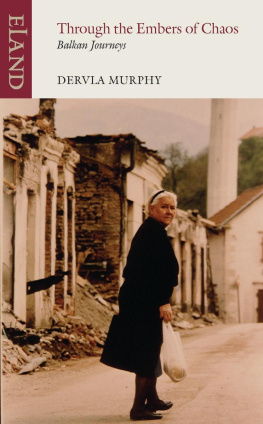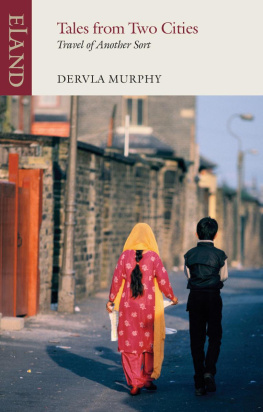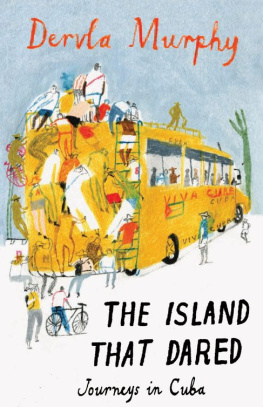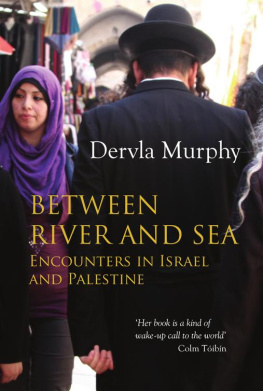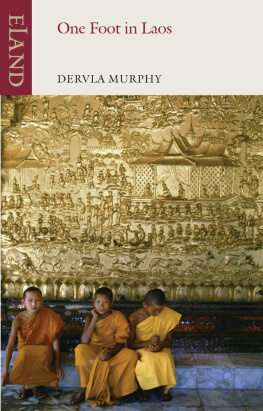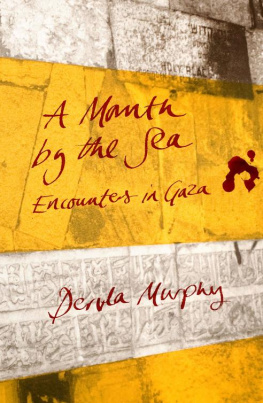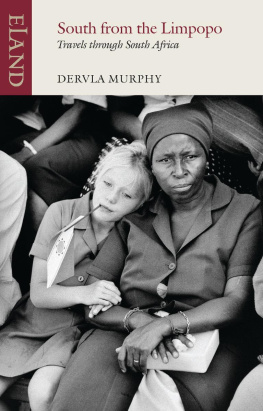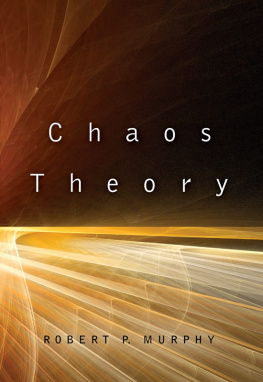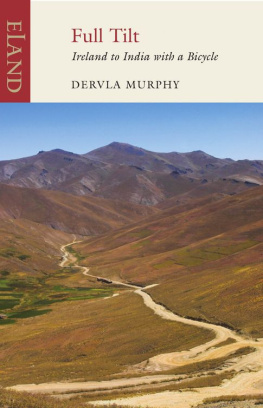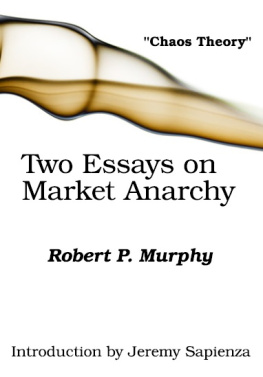Dervla Murphy - Through the Embers of Chaos: Balkan Journeys
Here you can read online Dervla Murphy - Through the Embers of Chaos: Balkan Journeys full text of the book (entire story) in english for free. Download pdf and epub, get meaning, cover and reviews about this ebook. year: 2017, publisher: Eland Publishing, genre: Politics. Description of the work, (preface) as well as reviews are available. Best literature library LitArk.com created for fans of good reading and offers a wide selection of genres:
Romance novel
Science fiction
Adventure
Detective
Science
History
Home and family
Prose
Art
Politics
Computer
Non-fiction
Religion
Business
Children
Humor
Choose a favorite category and find really read worthwhile books. Enjoy immersion in the world of imagination, feel the emotions of the characters or learn something new for yourself, make an fascinating discovery.
- Book:Through the Embers of Chaos: Balkan Journeys
- Author:
- Publisher:Eland Publishing
- Genre:
- Year:2017
- Rating:3 / 5
- Favourites:Add to favourites
- Your mark:
- 60
- 1
- 2
- 3
- 4
- 5
Through the Embers of Chaos: Balkan Journeys: summary, description and annotation
We offer to read an annotation, description, summary or preface (depends on what the author of the book "Through the Embers of Chaos: Balkan Journeys" wrote himself). If you haven't found the necessary information about the book — write in the comments, we will try to find it.
Through the Embers of Chaos: Balkan Journeys — read online for free the complete book (whole text) full work
Below is the text of the book, divided by pages. System saving the place of the last page read, allows you to conveniently read the book "Through the Embers of Chaos: Balkan Journeys" online for free, without having to search again every time where you left off. Put a bookmark, and you can go to the page where you finished reading at any time.
Font size:
Interval:
Bookmark:
ForZea,whodictatedtheshapeofthisbookfromthewombandwho,sinceemerging,hascontinuedtodictatetoeveryoneabouteverything
In all the former Yugoslav territories people are now living a postmodern chaos. Past, present and future are all lived simultaneously. In the circular temporal mish-mash suddenly everything we ever knew and everything we shall know has sprung to life and gained its right to existence.
Dubravska Ugrei, August 1993
A word about acronyms, which throughout the Balkans seem to breed even faster than elsewhere (see list in the ). In the numerous lengthy documents circulated by the plethora of international agencies sentences like this are the norm The OECD and the OSCE delegates were joined by an IPTF representative to establish new parameters around the structuring of transport programmes related to previous links between PRIZAD and JUSAT in what is now the NDH . In an attempt to control this plague I have referred to institutions such as the EU and OSCE by their current acronyms, even when writing about a time when they were otherwise known.
Two new terms are contentious though now in general usage: Kosovars instead of Kosova Albanians and Bosniaks instead of Bosnian Muslims. In the former case Kosovars offends some Serbs who argue that all who live in Kosovo should be so described, that to apply Kosovars only to the Albanians is to deny Kosovos Serbs the right to exist. However, at least 90 per cent of Kosovos population are Albanians who do not see themselves as citizens (or potential citizens) of either Serbia or Albania. Therefore to describe them as Kosovars seems fair enough. The Bosnian Muslims wish to be known as Bosniaks is even trickier. It can be seen to suggest that communitys assumption of a right to dominate in Bosnia, relegating Serbs and Croats to inferior minority status. But that is a perverse misinterpretation of the average Bosniaks attitude. The adoption of Bosniak merely signifies their wish to be seen as citizens of Bosnia-Herzegovina rather than as Muslims.
As for the phrase ethnic cleansing Im minded to start a campaign against its use. It originated in Serbia when the Miloevi-controlled media chose the euphemism ienjeterena (cleansing the terrain) to describe the forcible uprooting of non-Serbs from their home areas then referred to, by the same media, as liberated territories. Quickly foreign journalists adapted the phrase for their own use and ethnic cleansing a doubly inaccurate term is by now used all over the English-speaking world.
This abuse of language blunts both thinking and feeling. Cleansing is a wholesome word, conjuring up a process with a healthy outcome. And in the Balkan case ethnic cleansing is seriously misleading. Apart from Kosovos Albanians, all those involved in the recent conflicts are of the same stock southern Slavs to a man and woman. They were not murdering, plundering and displacing each other for ethnic reasons.
The international community is another reprehensible euphemism. As the journalist Diana Johnstone has pointed out, The IC is not even a community; the initials could more accurately stand for imperialist condominium, a joint exercise of domination by the former imperialist powers, torn apart and weakened by two World Wars, now brought together under us domination with Nato as their military arm. Certainly there are frictions between the members of this condominium, but so long as their rivalries can be played out within the IC , the price will be paid by smaller and weaker countries. When I refer to the international community or IC I mean this condominium rather than the true (but tragically impotent) international community represented by the UN General Assembly.
Finally, two old terms need clarification.
The Ustasha were ferocious ultra-nationalistic Croatians who fought with the Nazi invaders of Yugoslavia, in the expectation that after a German victory they could rule an independent Croatia.
The Chetniks were Serbian royalists and nationalists equally notorious for their ferocity during the Second World War. They at first fought against the Nazis and Ustasha, then became demoralized and divided. They no longer exist as a recognized group; in 1990 the Belgrade authorities refused to register as a political party Vojislav eeljs Serbian etnik Movement. However, recent victims of Serbian aggression in Croatia, Bosnia-Herzegovina and Kosovo habitually refer to the Serbian police, military and paramilitary forces as Chetniks and I have sometimes followed that usage.
In the mid-1980s, before Slobodan Miloevi gained power, all knowledgeable observers were aware that Yugoslavia might soon fall apart. Titos ingenious but perilously complicated constitutional devices had ensured the countrys peace and stability but without his quality of leadership were no longer effective. They had been based on the gradual strengthening of local authorities, and post-Tito this led to a dangerous disrespect for the federal government. Yet a countrywide referendum, held in 1990, might well have shown a majority in every Yugoslav republic (except tiny Slovenia) in favour of maintaining unity. Most Yugoslavs were proud of belonging to a state well regarded internationally for its non-alignment, its original brand of socialism and by regional standards its liberal political and economic policies. The failure of the latter didnt have to prove fatal to Yugoslavia.
However, during Titos twilight years (he died in 1980), his government unwisely sought prosperity through exports. Finance ministers borrowed wildly from the West, which soon after plunged into a recession and rejected Yugoslav goods, leaving the country debt-stricken. The International Monetary Fund ( IMF ) then persuaded the government to dump most of the debt-related hardships on the working class. Concurrently the Yugoslav League of Communists spawned several opportunistic leaders eager to ingratiate themselves with Western bankers and entrepreneurs. Among them was Slobodan Miloevi not a committed Communist, or capitalist, or nationalist, but someone dedicated to reinforcing his own and his wifes positions in whatever power structure might best serve their purposes as the post-Cold War world took shape.
In 1984 the Reagan administration accepted the US National Security Councils advice to push Yugoslavia towards a capitalist restoration whereupon the World Bank imposed a uniquely punitive banking mechanism on Yugoslav industries. In the crucial years of 198990, this caused 600,000 redundancies, without compensation, out of a 2.7 million workforce. Another half-million went unpaid during the first quarter of 1990. On 29 November 1990 the InternationalHeraldTribune reported that the CIA had warned President Bushs State Department: Yugoslavia is heading for civil war within eighteen months.
As the last of the benefits provided by Titos self-management socialism were eroded, the IMF s Yugoslav allies assured the masses that if they bore their cross patiently they would soon come to a glorious resurrection within the EU . The Slovenes were the first to indicate that they felt they had carried their cross far enough. In January 1990 they made plain their intention of seceding from Yugoslavia as soon as possible and joining the EU . Meanwhile secessionists in Croatia were reactivating pre-1945 bourgeois nationalism, complete with slogans and symbols that for older people awoke bloody memories and, among the younger generations, stirred new fears.
Since Mikhail Gorbachevs advent, Germany, Austria, Hungary and the Vatican had been seeking to re-establish their traditional spheres of influence and by 198990 were vigorously promoting Slovenian and Croatian independence. In 1992 John Zametica, of the London International Institute for Strategic Studies, wrote:
Font size:
Interval:
Bookmark:
Similar books «Through the Embers of Chaos: Balkan Journeys»
Look at similar books to Through the Embers of Chaos: Balkan Journeys. We have selected literature similar in name and meaning in the hope of providing readers with more options to find new, interesting, not yet read works.
Discussion, reviews of the book Through the Embers of Chaos: Balkan Journeys and just readers' own opinions. Leave your comments, write what you think about the work, its meaning or the main characters. Specify what exactly you liked and what you didn't like, and why you think so.

